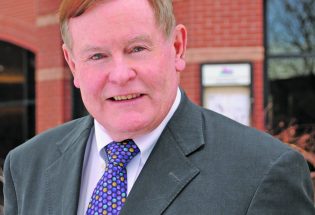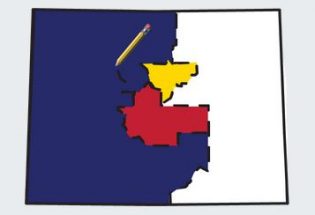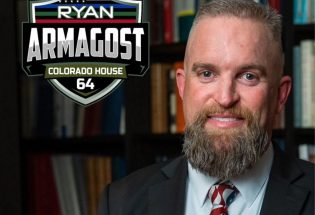State General Assembly meets after Proposition HH fails
By Brendan Henry and Will Cornelius
The Surveyor
After Colorado voters shot down Proposition HH on the 2023 ballot, Gov. Jared Polis called for a special session to address a large rise in property taxes many homeowners anticipate next year. The four-day legislative session was needed before Dec. 15, when local counties need to finalize their mill levies for 2024. Polis urged the legislature to deliver immediate property tax relief for Coloradans next year while also setting up a ‘blue-ribbon’ panel to find a long-term solution to property taxes.
Holding a supermajority in the Colorado statehouse, Democrats passed seven bills, mostly along party lines, with similar aims Prop. HH proposed. Republicans protested many of the bills, stating that they were the same policies that voters rejected by a 19% margin two weeks earlier.
Prop. HH’s defeat at the ballot box proved voter’s reluctance to change the Taxpayer’s Bill of Rights (TABOR) spending caps.
The state was not able to raise TABOR limits, because voters rejected Prop. HH. However, TABOR funds will be used in 2024 to blunt the impact of rising property taxes. Voter approval is needed for the state to keep more TABOR funds for expenditures, but not if the state uses TABOR funds to reduce other taxes.
Below are the bills passed during the special session.
SB23B-001: 2023 Property Tax Relief—The chief bill addressing property taxes will reduce the residential assessment rates from 6.765% to 6.7% and increase the valuation exemption amount for homeowners to $55,000. This loss in tax revenue will be offset by $200 million lawmakers set aside from the general fund earlier in the year in anticipation of Prop. HH passing.
Due to lower tax receipts, school, fire, hospital and ambulance authorities are to be partially paid for lost revenue depending on the growth of assessment values. Areas with growth under 15% are likely to see more of the state’s money.
SB23B-002: Identical TABOR Refund—Another Democrat priority that was woven into Prop. HH was a provision that created fixed TABOR refunds for all Colorado tax filers next year. Flat TABOR refunds were also distributed at the end of 2022, for the 2023 tax year, as ‘Colorado Cash Back.’ Democrats claim that it is progress toward equity while Republicans argue that it is unfair to those that paid more in taxes.
An accompanying fiscal note estimates that Colorado taxpayers will receive $800 per person in TABOR refunds, or $1,600 for joint filers, next year.
HB23B-1001: Emergency Rental Assistance Grant Program—Providing relief to renters was another goal for Democrats. This bill provides $30 million for a state-run grant program that will target those who make 80% or less of their area’s median household income and are at risk of eviction or displacement. The grants will be administered through the Division of Housing within the Department of Local Affairs. If the funds are not utilized by July 2024, the money will go back to the state.
HB23B-1001: Increased Earned Income Tax Credit 2023—This is a one-time TABOR refund that will expand the state’s Earned Income Tax Credit (EITC) next year. Like the federal EITC, Colorado’s is targeted to low-income families. Last year, 430,000 Coloradans claimed the tax credit. For the coming tax year, the state’s EITC will increase from 25% to 50% of the federal EITC.
The expansion of the tax credit costs $182.5 million and will be deducted from TABOR funds, which even after the deduction will still be over $3 billion. TABOR funds can be used without voter approval to reduce other taxes, but not for expenditures.
HB23B-1003: Property Tax Task Force—Following Polis’ request, this bill will create a 19-person task force commission to investigate short and long-term solutions to rising property taxes. Four of the members will be legislators while the rest are a mix of state and local public officials. The 19 positions are all appointed by various political figures.
It is unclear how that task force will function, but it will not be long before the task force is revealed. Appointments to the task force are due by Dec. 4.
HB23B-1008: Appropriation For Department Of Treasury—A technical bill, appropriating $87,000 to the state’s treasury department to support the administration of property tax deferrals passed in concurrent bills.
SB23B-002: Summer Electronic Benefits Transfer Program—Unrelated to property taxes, Polis also asked legislators to act quickly to access a new federal food aid program available over the summer. Appropriating $11 million over two years to the Colorado Department of Human Services is projected to net low-income Colorado kids over $35 million from the Summer Electronic Benefits Transfer (EBT) Program. The EBT program will provide $120 in food aid next summer to qualifying families per school-age kid.
A much-publicized distraction occurred during the debate on the bill involving Democrat Rep. Elisabeth Epps. Epps sought to create an amendment in the bill so that state funds could not be used to purchase goods originating from the Palestinian territories in the West Bank and Gaza Strip.
The amendment was not included in the bill, but she finished her speech from the well with “Free Palestine,” prompting a negative response from Republican representatives.
Representative Ron Weinberg, the only Jewish member in the House GOP caucus, gave a speech following a recess, garnering support from a majority of the House.
“I think it was kind of a travesty of what we came here to do and what the end result was and what the product was that we created for the voters,” Berthoud-based Republican Rep. Ryan Armagost said to Denver 7 regarding the special session.
The General Assembly will meet for the 2024 regular session on the week of Jan. 7, 2024.
- October, 23 2020

Bob McCluskey (R) Larimer County Comm...
He’s been a resident of Larimer County for nearly seven decades and now, after serving...
- October, 29 2020

Colorado redistricting commissions se...
In 2018, Colorado voters overwhelmingly approved Amendments Y and Z, which established independent citizen commissions...
- November, 05 2022

Bennet and O’Dea debate inflati...
Last Friday night, incumbent Democratic Senator Michael Bennet and Republican Senate nominee Joe O’Dea met...
- October, 20 2022

Ryan Armagost, Berthoud resident and ...
Berthoud resident Ryan Armagost, Republican candidate for Colorado State House District 64 (HD-64) that includes...
- October, 20 2022

Election 2022 – Colorado amendm...
Proposition 121 offers income tax cut for all Coloradans In 1987, Colorado instituted a flat...
- November, 11 2022

Armagost wins House District 64
On Tuesday night voters overwhelmingly backed Republican Ryan Armagost for Colorado State House District 64...

Unified basketball comes to Turner Middle School
Community News

Mike Grace says goodbye as Brett Wing joins town board
Community News
POLICEBLOTTER
Community News
Northern Water sets C-BT quota at 70% for 2024
Community News

Emotions run high during Revere Property hearing
Community News
Snowpack at 119% above normal
Community News

Karspeck to serve third term as Berthoud mayor
Community News
COMMUNITY CALENDAR:
Community Calendar – add an event
Homestead Fine Art Gallery First Fridays OPEN HOUSE
03 May 4:00 PM - 7:00 PM
Homestead Fine Art Gallery First Fridays OPEN HOUSE
07 Jun 4:00 PM - 7:00 PM
Homestead Fine Art Gallery First Fridays OPEN HOUSE
05 Jul 4:00 PM - 7:00 PM
Homestead Fine Art Gallery First Fridays OPEN HOUSE
02 Aug 4:00 PM - 7:00 PM
Homestead Fine Art Gallery First Fridays OPEN HOUSE
06 Sep 4:00 PM - 7:00 PM
Homestead Fine Art Gallery First Fridays OPEN HOUSE
04 Oct 4:00 PM - 7:00 PM

